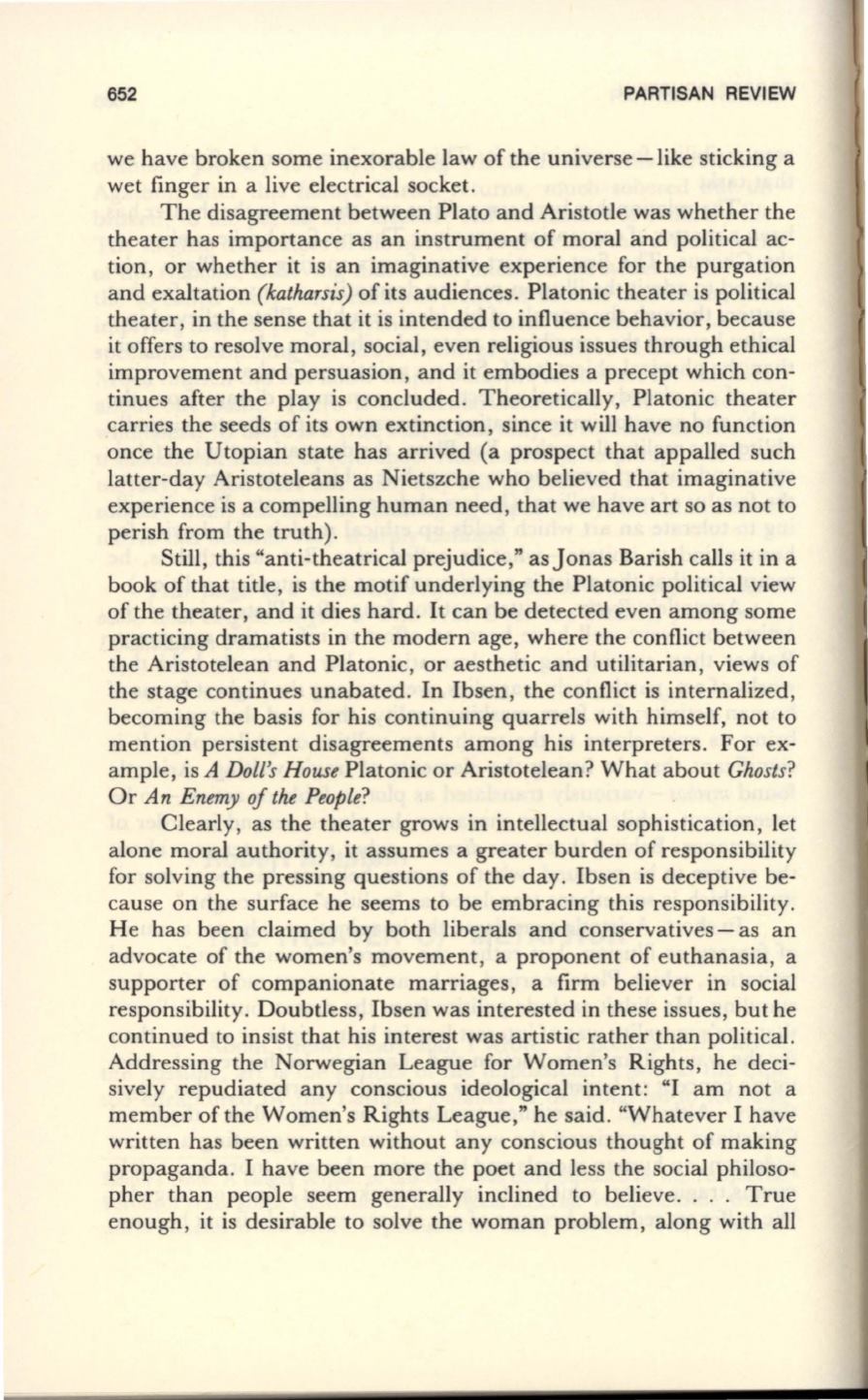
652
PARTISAN REVIEW
we have broken some inexorable law of the universe -like sticking a
wet finger in a live electrical socket.
The disagreement between Plato and Aristotle was whether the
theater has importance as an instrument of moral and political ac–
tion, or whether it is an imaginative experience for the purgation
and exaltation
(katharsis)
of its audiences. Platonic theater is political
theater, in the sense that it is intended to influence behavior, because
it offers to resolve moral, social, even religious issues through ethical
improvement and persuasion, and it embodies a precept which con–
tinues after the play is concluded. Theoretically, Platonic theater
carries the seeds of its own extinction, since it will have no function
once the Utopian state has arrived (a prospect that appalled such
latter-day Aristoteleans as Nietszche who believed that imaginative
experience is a compelling human need, that we have art so as not to
perish from the truth).
Still, this "anti-theatrical prejudice," as jonas Barish calls it in a
book of that title, is the motif underlying the Platonic political view
of the theater, and it dies hard.
It
can be detected even among some
practicing dramatists in the modern age, where the conflict between
the Aristotelean and Platonic, or aesthetic and utilitarian, views of
the stage continues unabated . In Ibsen, the conflict is internalized,
becoming the basis for his continuing quarrels with himself, not to
mention persistent disagreements among his interpreters. For ex–
ample, is
A Doll's House
Platonic or Aristotelean? What about
Ghosts?
Or
An Enemy of the People?
Clearly, as the theater grows in intellectual sophistication, let
alone moral authority, it assumes a greater burden of responsibility
for solving the pressing questions of the day . Ibsen is deceptive be–
cause on the surface he seems to be embracing this responsibility.
He has been claimed by both liberals and conservatives- as an
advocate of the women's movement, a proponent of euthanasia, a
supporter of companionate marriages, a firm believer in social
responsibility. Doubtless, Ibsen was interested in these issues, but he
continued to insist that his interest was artistic rather than political.
Addressing the Norwegian League for Women's Rights, he deci–
sively repudiated any conscious ideological intent: "I am not a
member of the Women's Rights League," he said. "Whatever I have
written has been written without any conscious thought of making
propaganda. I have been more the poet and less the social philoso–
pher than people seem generally inclined to believe. . . . True
enough, it is desirable to solve the woman problem, along with all


